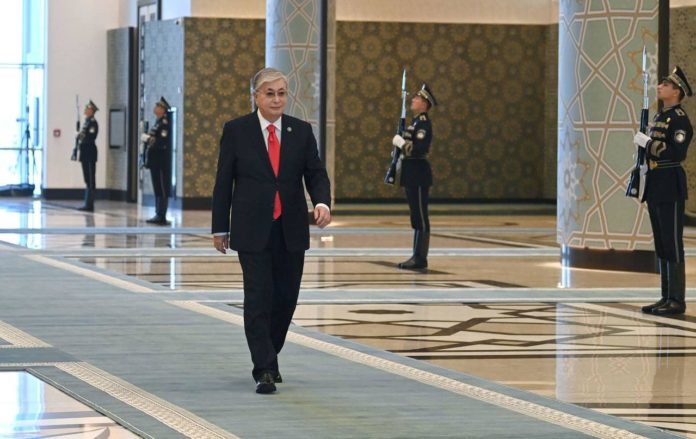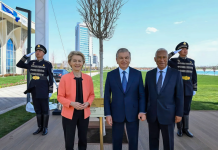By Raza Syed
In his State of the Union address on September 1, 2022, President Tokayev announced the foreseeable presidential election, claiming he needed “new credentials from the people” as the basis for his decision.
The “necessity” of these elections has led to unprecedented political turmoil, intrigue and disagreement in a country that has not only kept peace but achieved peace since its independence in December 1991.
The last Presidential elections in 2019 considered a reamrkable competition because seven registered candidates made it the biggest competition with the largest numbers of candidates ever in the Kazakhstan’s history. Among the candidates from political parties and public bodies was Dania Espaeva, the first Kazakh woman who officially participated in elections. ‘
This political campaign focused on a variety of issues, including the legacy of former President Nazarbayev’s policies and the current political system. The presidential candidate proposed solutions ranging from further democratization and decommunization to the development of nation’s values.
Tokayev’s victory was marked as the first peaceful transition of power in Kazakhstan’s history,despite “significant irregularities’ being observed on election day, including cases of ballot box stuffing, and a disregard of counting procedures meaning that an “honest count could not be guaranteed.” said the OSCE in their Statement of Preliminary Findings and Conclusions.
On 12 June 2019, Tokayev took the oath of office during a ceremony in the capital, Nur-Sultan, where he pledged to protect the interests of every citizen and consider any proposals and initiatives that would be put forward by political and community leaders.
Fast forward to November 2022 and the country seems a very different place – widespread unrest in January – described as a ‘Coup D’etat’, the purging of Nazarbayev’s supporters not to mention the effects of the Covid pandemic, inflation at previously unseen levels and a neighboring country involved in a vicious military conflict, have all made their mark on the psyche of the everyday Kazakh. People are openly discussing and questioning the authorities, something that was unheard of under President Nazarbayev, and they want answers and solutions.
At the November 2022 elections there are six candidates registered, two women and four men and despite the short time frame canvassing has been carried out feverishly, on many of the same issues as in 2019! Feelings are running high and many ordinary people believe that this could be the first truly free elections in Kazakhstan’s history but many have their reservations believing that new constitutional powers allow for ‘window dressing’ and the old order being returned to power, in particular younger people appear disenfranchised.
Elections are being monitored by the Organization for Security and Cooperation in Europe (OSCE). The OSCE has set up an election observer mission in Astana. The mission, led by Urszula Gacek, consisted of 11 international experts and her 30 long-term observers will be deployed across Kazakhstan from 26 October, and she will also send 300 short-term observers to observe the electoral process 20 November.
Observers arrived a few days before the start of the Election Day. To quote the controversial Chinese curse, “May you live in interesting times!” – In my own experience, Kazakhstan has always been an interesting country, but now it’s really very interesting times indeed!






